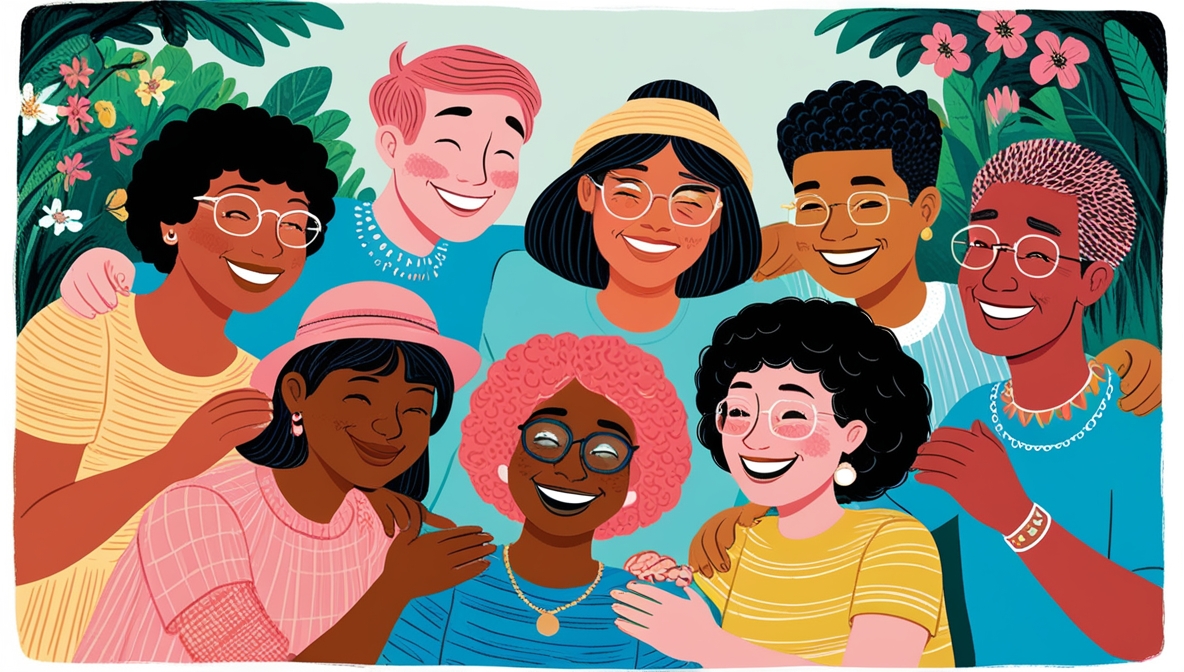Friendship is one of the most profound connections humans experience. It brings joy, support, and a sense of belonging, answering the innate human need for companionship. But what makes these bonds so unique, and why do they matter so much in our lives? Let’s explore the elements, types, and importance of friendship.
What Defines Friendship?
Friendship is characterized by mutual trust, understanding, and care between two individuals. It goes beyond mere acquaintanceship, encompassing emotional investment and a willingness to share experiences. At its core, it is a relationship built on respect, empathy, and a shared sense of purpose.
The Building Blocks of Friendship
Strong friendships don’t form overnight. They are nurtured through intentional actions and shared experiences. Below are some key elements that form the foundation of meaningful friendships:
- Trust: This is the cornerstone of any relationship. Friends need to feel confident in one another’s honesty and reliability.
- Empathy: Understanding each other’s emotions fosters deeper connections.
- Communication: Open and honest communication strengthens bonds and resolves misunderstandings.
- Shared Interests: Common hobbies or values create a natural connection.
- Mutual Support: Friends stand by each other through challenges, offering encouragement and assistance.
The Types of Friendships
Friendships can take many forms, each with its own unique dynamics. Understanding these types can help you appreciate the variety of connections in your life.
- Childhood Friends: These are often our first bonds, formed during early years and marked by innocence and shared growth.
- Workplace Friends: Colleagues who become confidants bring balance and camaraderie to professional settings.
- Long-Distance Friends: Despite physical distance, these friendships endure through commitment and regular communication.
- Activity-Based Friends: Bonds forged through shared interests, such as sports or hobbies, often bring excitement and energy.
- Emotional Support Friends: These are the ones you turn to in times of need for encouragement and understanding.
Why Friendships Matter
The significance of friendships cannot be overstated. They impact nearly every aspect of life, from mental health to personal growth.
- Emotional Well-Being: Friends provide comfort during tough times and amplify joy during happy moments.
- Physical Health: Research shows that strong social connections can lower stress levels and even improve heart health.
- Personal Development: Friends challenge you to grow by offering new perspectives and constructive feedback.
- Sense of Belonging: Feeling accepted and valued by friends enhances self-esteem and reduces feelings of loneliness.
How to Build and Maintain Friendships
While some friendships form effortlessly, others require effort and intentionality. Here are actionable ways to build and sustain meaningful connections:
1. Initiating New Friendships
- Be open to meeting new people. Attend social events or join groups aligned with your interests.
- Show genuine curiosity. Ask questions and actively listen to others’ stories.
- Take initiative. Don’t wait for others to make the first move; invite someone to coffee or a casual hangout.
2. Strengthening Existing Friendships
- Make time for regular catch-ups, even if it’s a quick phone call or message.
- Show appreciation. Acknowledge their presence and contributions to your life.
- Be dependable. Consistency builds trust and reassures friends of your commitment.
3. Handling Conflicts
- Address issues calmly and openly rather than letting resentment fester.
- Apologize when necessary and accept apologies with grace.
- Focus on understanding each other’s perspectives instead of assigning blame.
The Challenges of Friendship
Friendships, like any relationship, face their share of challenges. Recognizing and addressing these hurdles can help you navigate them effectively.
- Time Constraints: Busy schedules can lead to unintentional neglect of friendships. Prioritizing quality time is crucial.
- Miscommunication: Misunderstandings can strain relationships. Clarify and resolve issues promptly.
- Life Changes: Events like moving, career shifts, or starting families can impact dynamics. Adapting to these changes is key.
- Toxic Friendships: Sometimes, a friendship becomes unhealthy. Recognizing when to set boundaries or walk away is vital for your well-being.
The Lifelong Benefits of Friendship
Strong friendships have enduring benefits that enhance your life in profound ways:
- Resilience: Friends help you navigate hardships by offering support and perspective.
- Creativity: Engaging with diverse perspectives encourages innovative thinking.
- Longevity: Social connections contribute to a longer, healthier life.
- Legacy: Cherished memories with friends become a lasting part of your personal story.
Celebrating Friendship
Friendships deserve to be celebrated regularly. Here are a few simple ways to honor the bonds you share:
- Write a heartfelt note expressing your gratitude.
- Plan a day out to relive old memories or create new ones.
- Surprise a friend with a thoughtful gesture, such as their favorite treat or a meaningful gift.
Final Word
Friendship is a fundamental part of life, enriching our experiences and offering a source of comfort, joy, and growth. By understanding its importance and nurturing your connections, you invest in one of the most rewarding aspects of being human.
